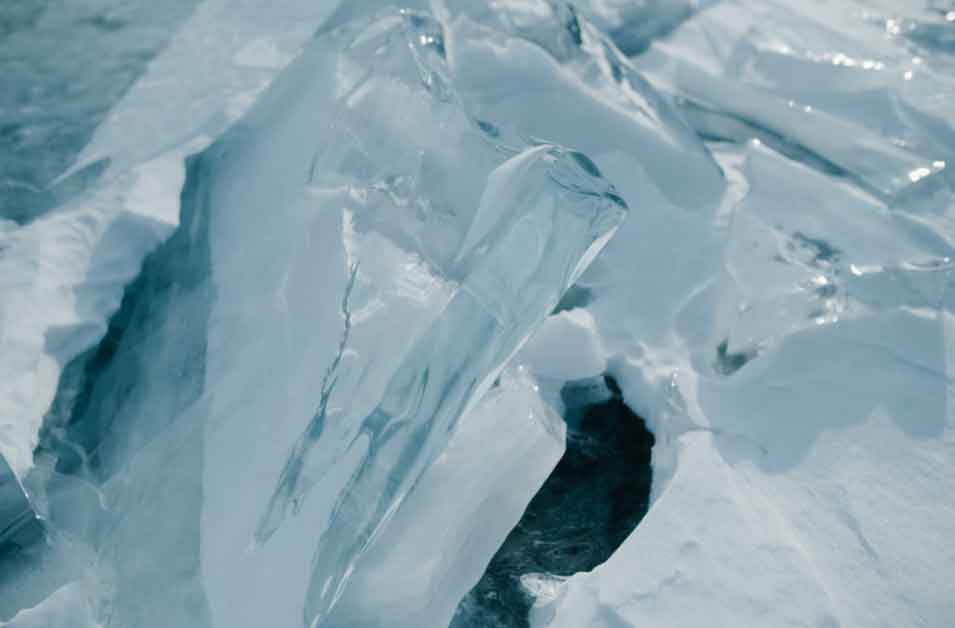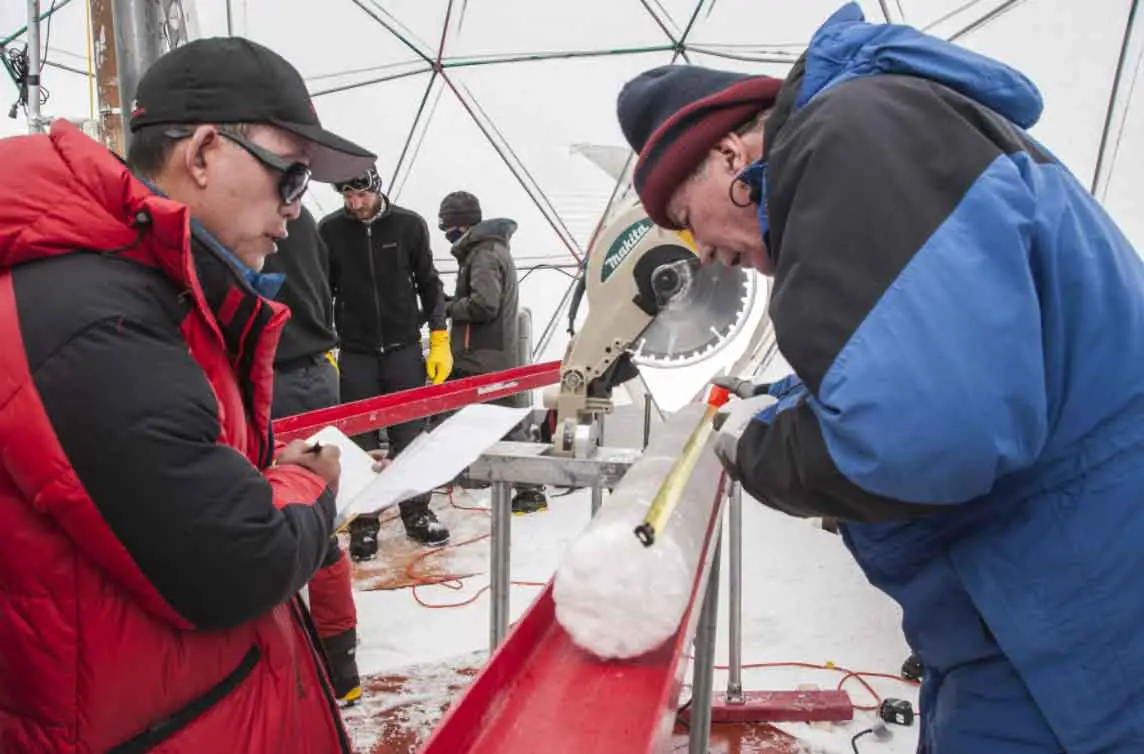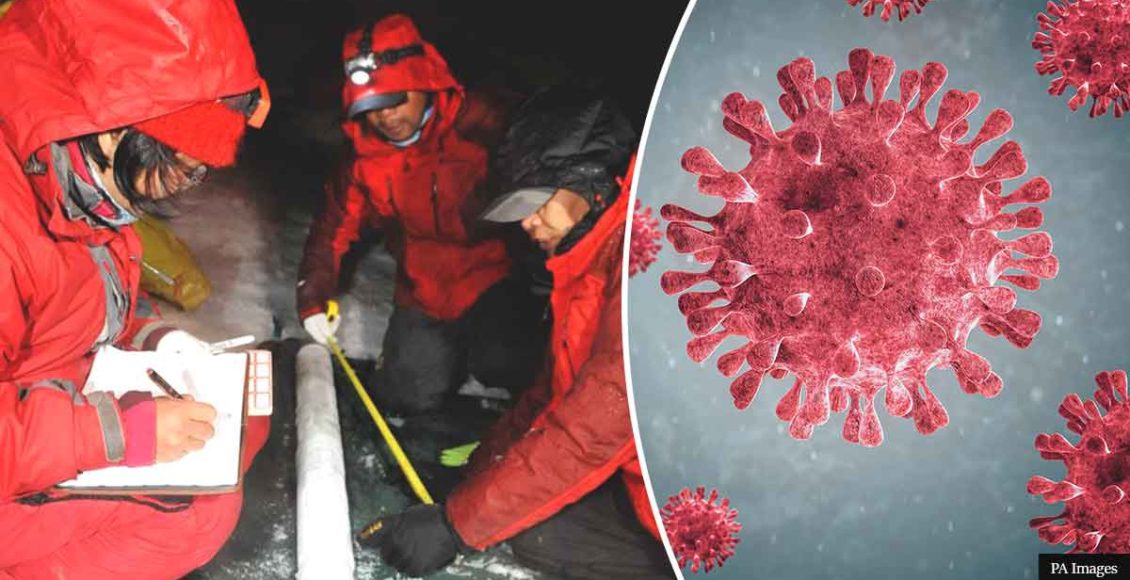China: Over 30 never-before-seen viruses have been discovered frozen in ice.

Today, the world is still battling with coronavirus, a deadly virus that originates from the now world-famous Huanan seafood market in Wuhan, China. With that thought in mind, the following piece of news is incredibly disturbing.
As Unilad reports, scientists have recently discovered genetic codes for 33 frozen viruses, with up to 28 of them having never been identified before. The shocking findings are published in the Microbiome journal.
According to the experts, the unknown viruses came from soil or plants, as they managed to survive about 15,000 years.
Zhi-Ping Zhong, lead author and researcher at The Ohio State University Byrd Polar and Climate Research Centre, explains:
“These glaciers were formed gradually, and along with dust and gases, many, many viruses were also deposited in that ice. The glaciers in western China are not well-studied, and our goal is to use this information to reflect past environments. And viruses are a part of those environments.”
Matthew Sullivan, co-author of the study and professor of microbiology at Ohio State, adds:
“These are viruses that would have thrived in extreme environments. These viruses have signatures of genes that help them infect cells in cold environments – just surreal genetic signatures for how a virus is able to survive in extreme conditions.
These are not easy signatures to pull out, and the method that Zhi-Ping developed to decontaminate the cores and to study microbes and viruses in ice could help us search for these genetic sequences in other extreme icy environments – Mars, for example, the moon, or closer to home in Earth’s Atacama Desert.”

Additionally, Lonnie Thompson, senior author of the study, claims that the discovery will help researchers learn more about how viruses respond to climate change. He notes:
“We know very little about viruses and microbes in these extreme environments, and what is actually there. The documentation and understanding of that is extremely important.”



